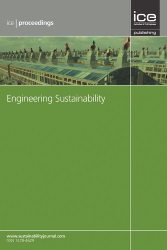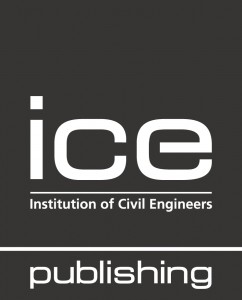Significant heat is generated by underground trains, particularly when braking, stopping at platforms and accelerating away from stations. A complex ventilation system including shaft, fans and under-platform extraction has to be designed to manage the rising temperature in tunnels and stations. This conventional approach results in high energy consumption for running the fans and neglects the possibility to use the extracted heat above ground in buildings. Lining underground rail tunnels with heat-exchange segments can provide an alternative solution to cool the tunnels and surrounding ground, and transfer the harvested heat to adjacent buildings for heating. It will also bring benefits in terms of reduction of energy consumption for tunnel ventilation operations. This paper reports on the work carried out in designing thermal energy segments for use on the tunnelled sections of Crossrail.
This paper has been published in ICE Journal Engineering Sustainability 167 June 2014 Issue ES3 and the full paper can be accessed here.


